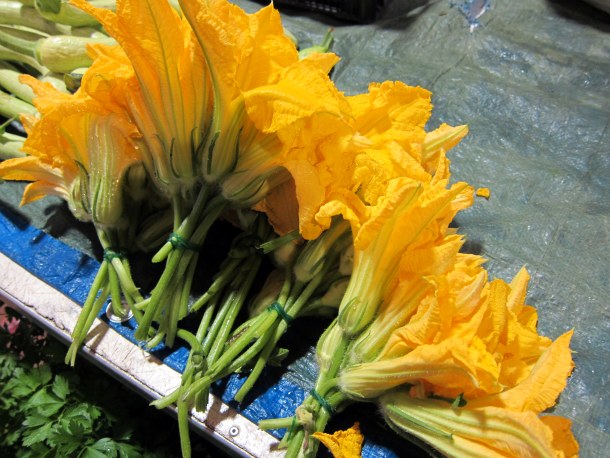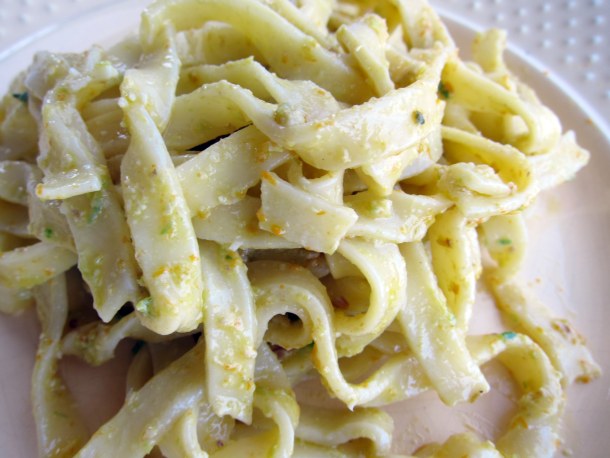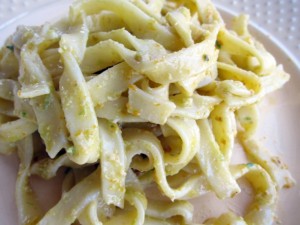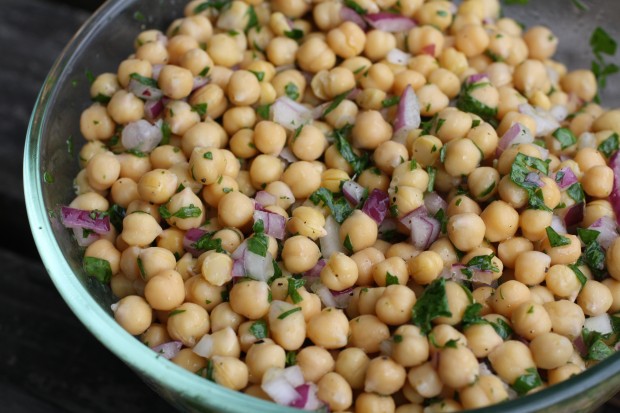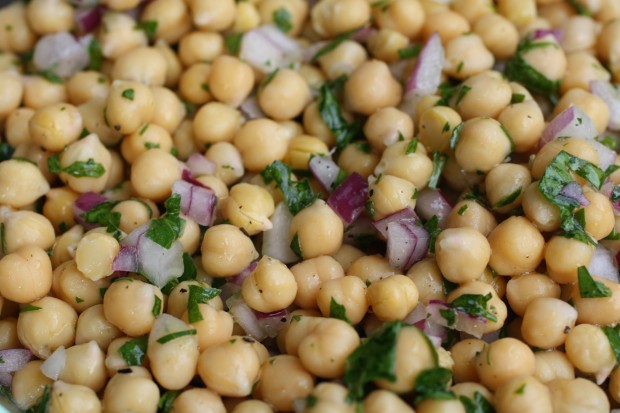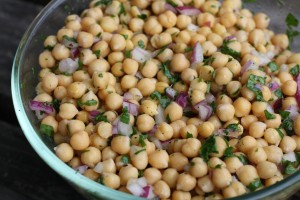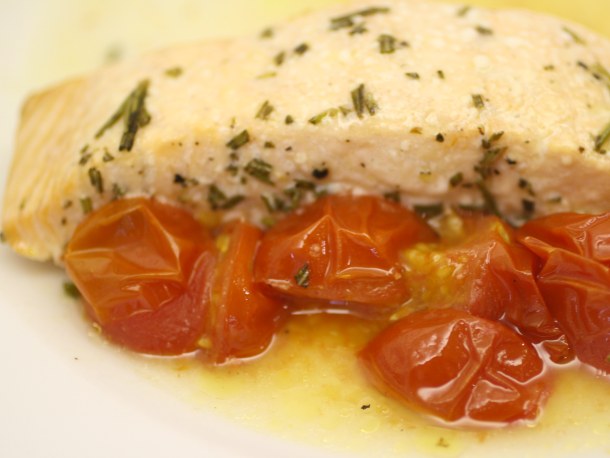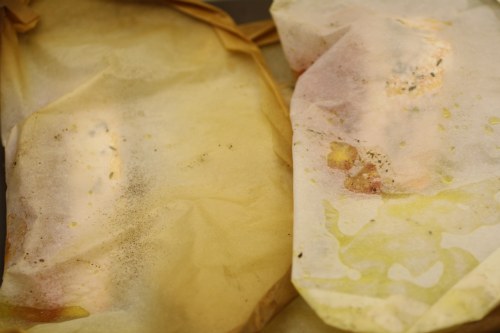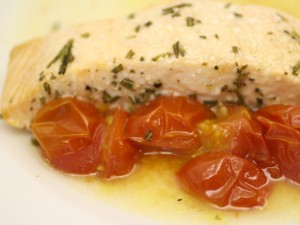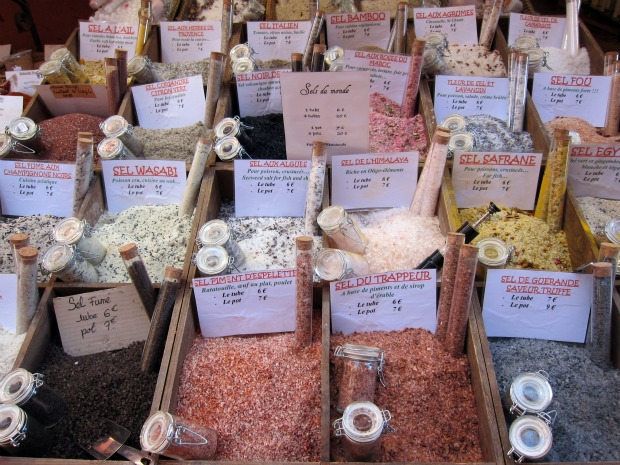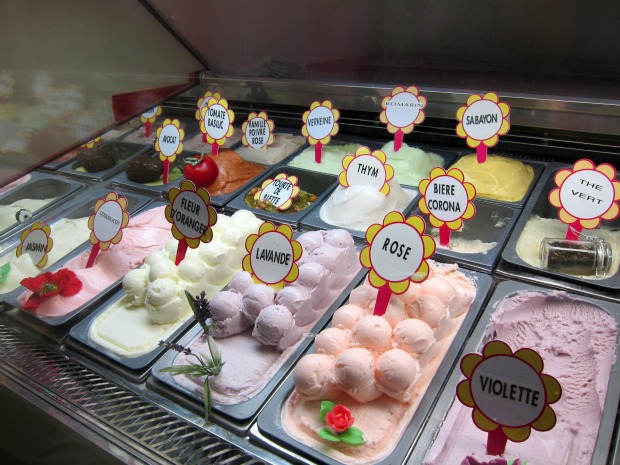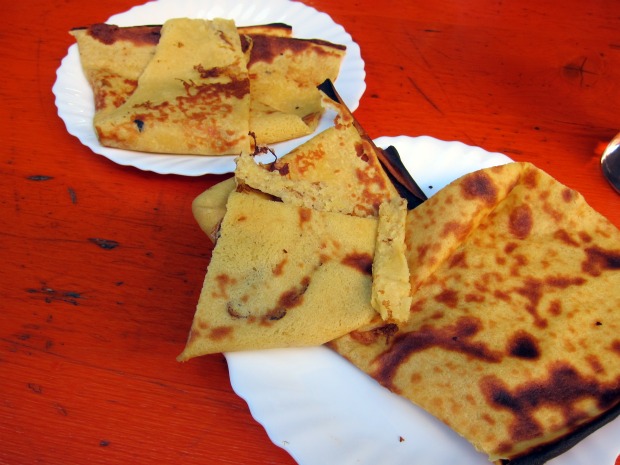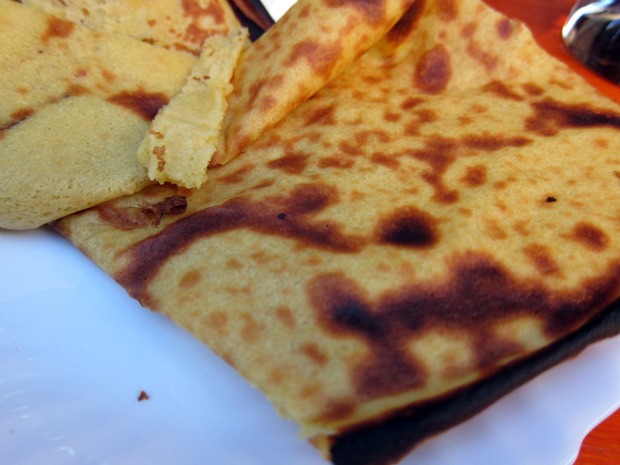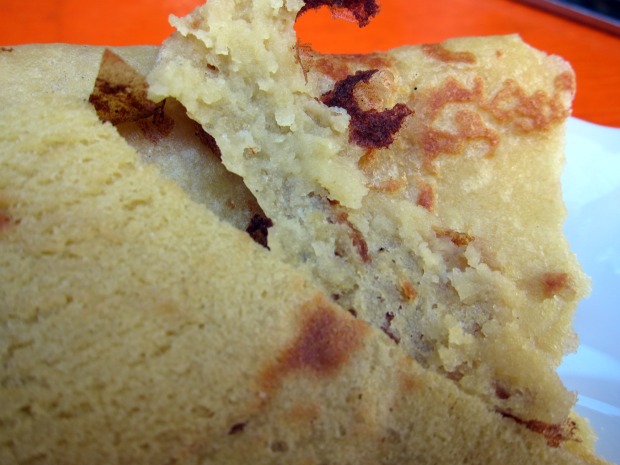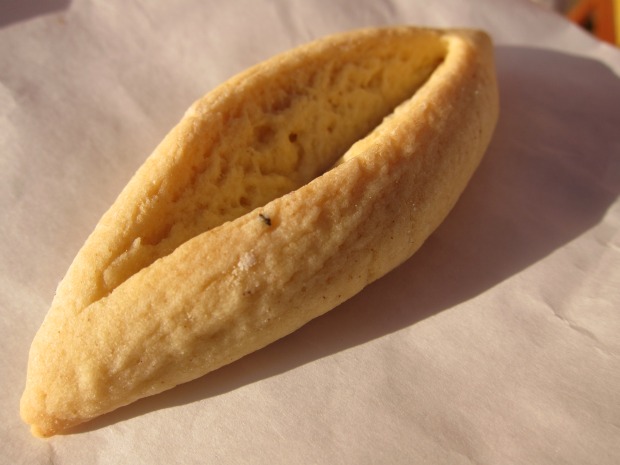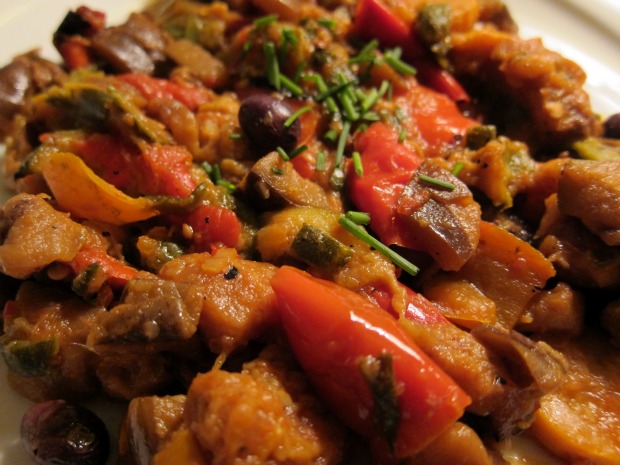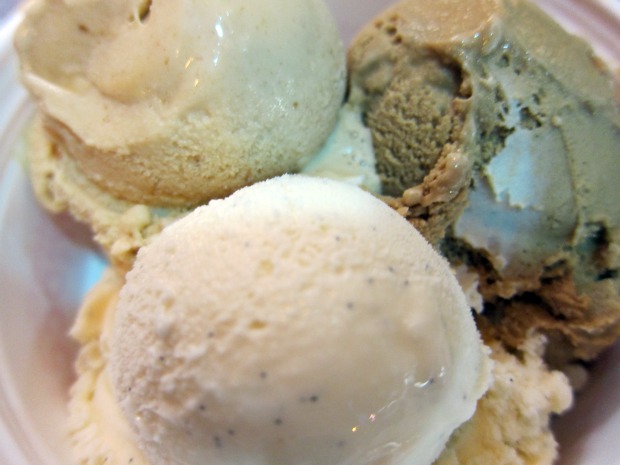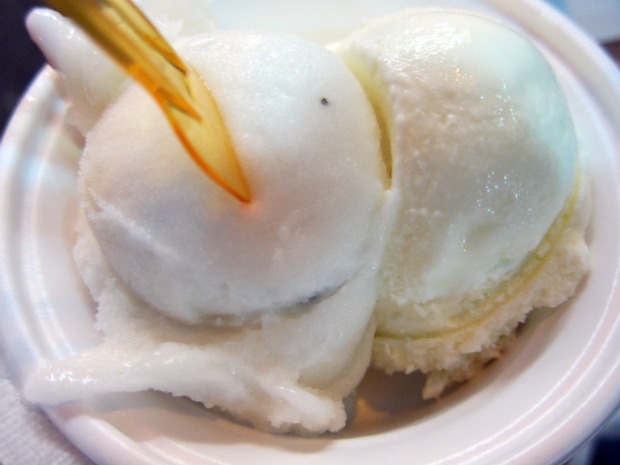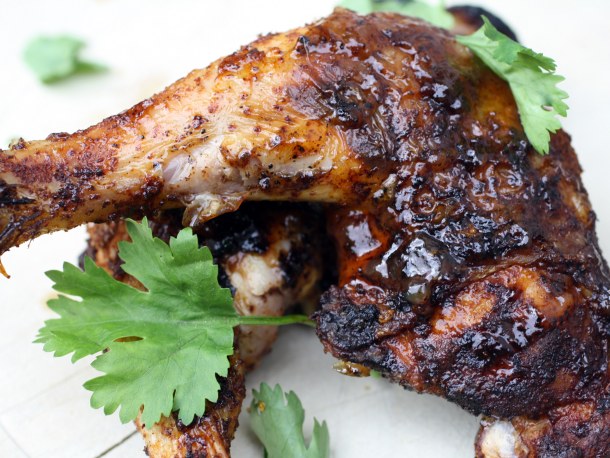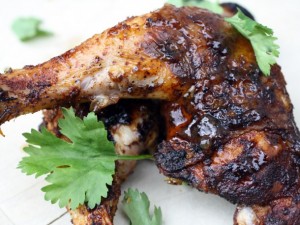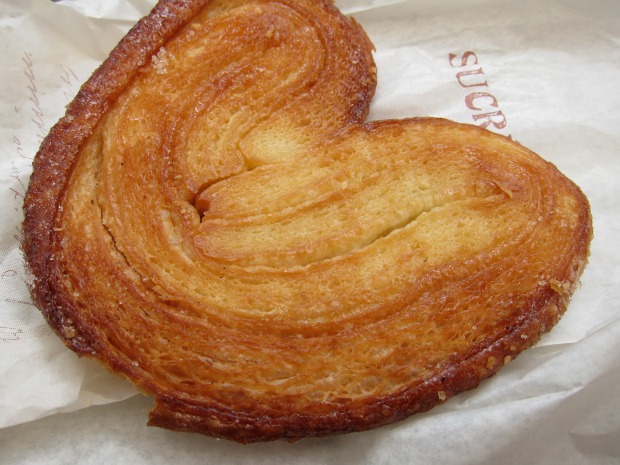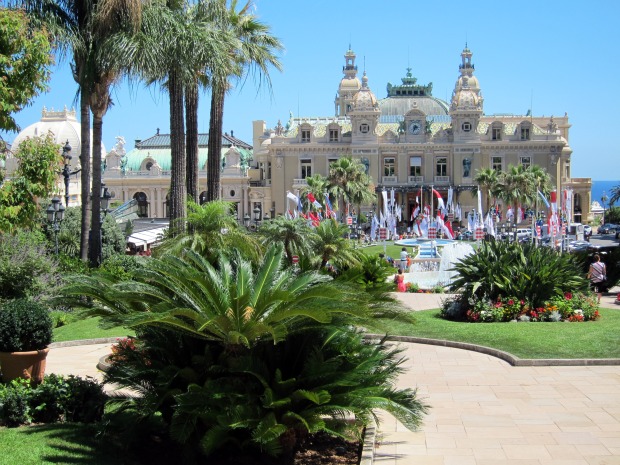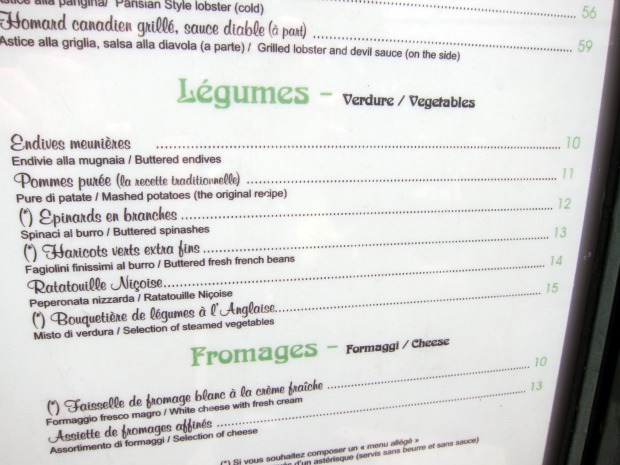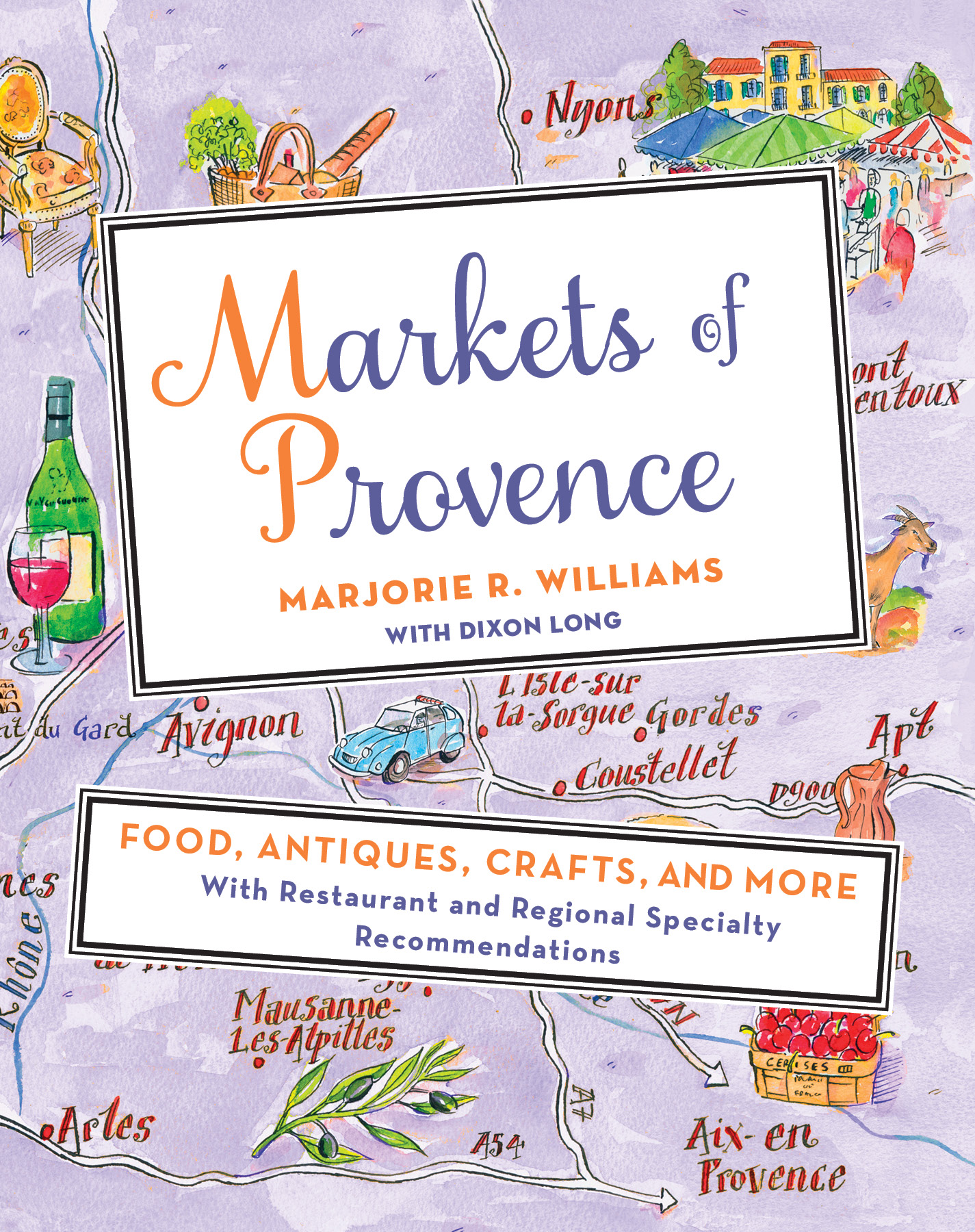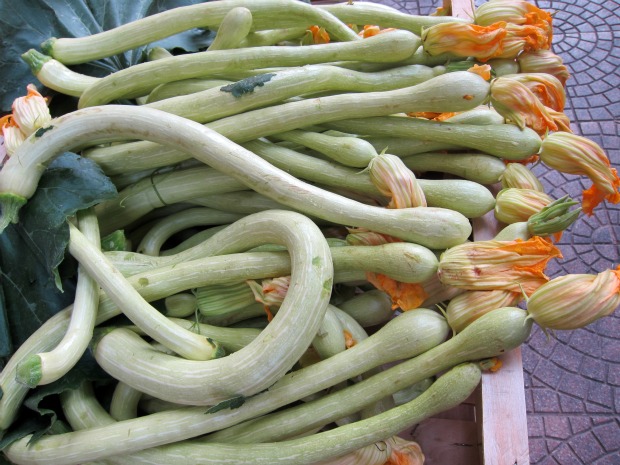
Crazy Italian Zucchini in Ventimiglia's Market
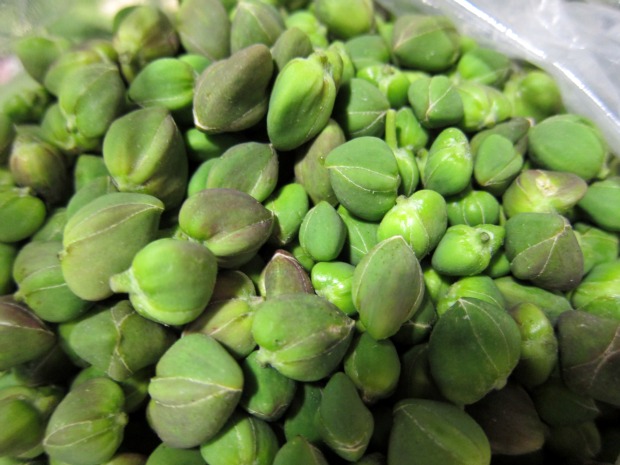
I've never seen fresh capers before...
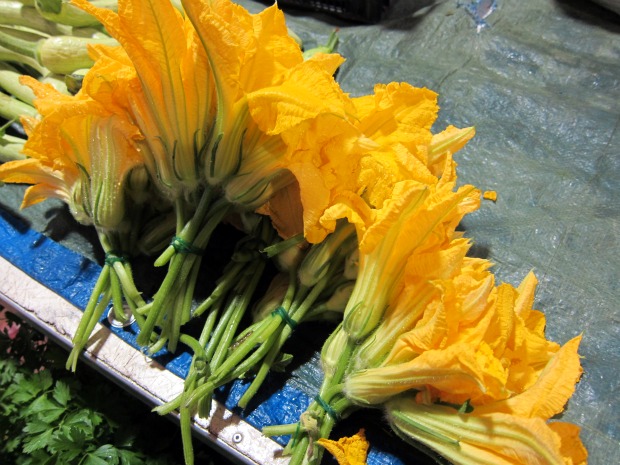
Bundles of Zucchini Flowers for Just a Euro
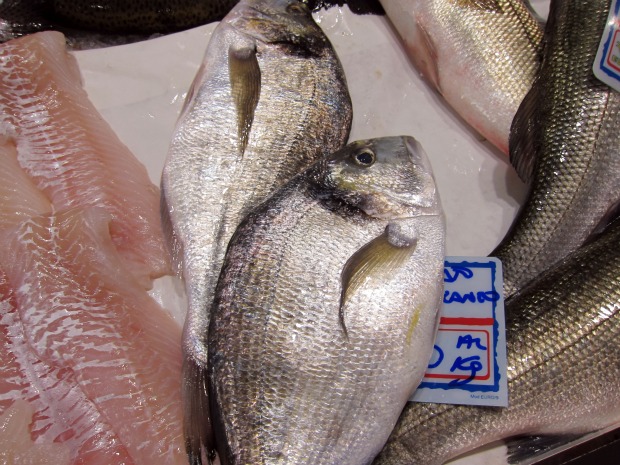
Orata, Stuffed with Lemons, and Roasted with Salt and Olive Oil for Dinner
Today was all about shopping. But not like in Nice, where I was hitting the summer sales at my favorite French high street shops.
We drove across the border to Italy–not far away. And immediately, the world changed. Everything, the buildings, the people, even the shore, became more abundant, and more run down. It was still in the midst of the morning chill when we pulled up to a shady piazza in a town called Ventimiglia, near the sea. Before us stood the huge square of an indoor market, about which we had heard great things.
The market did not disappoint. Everywhere were those darling little sweet white peaches that are flattened out as if God had accidentally sat on the first one, and they had never recovered. I love those peaches. Huge, thin zucchini that twirled this way and that like overgrown fingernails. Heirloom tomatoes in large teardrop shapes, ridged as if swelling with pride. There were cheese stalls, where my parents haggled to taste every tomme in the place in search of some mythical cheese that had bought and couldn’t find again. We tasted shards of sheep’s cheeses, and cow’s cheeses, and goat’s cheeses. That wasn’t such a bad activity. Butchers with whole rabbits and chickens. A fishmonger with langoustines and enough mussels to make my previous attempts at all-you-can-eat mussels seem pretty feeble. I bought an orata, which I’ve been noticing on a lot of New York menus. Scaled, gutted, and gilled before my very eyes. And then, my most precious find: zucchini flowers. I love them, probably most, frankly, for their rarity. They are only in season in the States for a second, blooming off the ends of the summer squashes and zucchinis. I sometimes find them at the Union Square Farmers Market, or at Whole Foods, but they are exorbitant–sometimes a dollar per flower. In Nice, I mentioned yesterday, they fry them up in beignet batter, and serve them with lemon wedges as street food. There’s something about getting a diamond for the price of a lump of coal.
Bright gold and frilly, they were beautifully bound in bridal bouquets. I bought two. Because I could. They were only a Euro for ten.
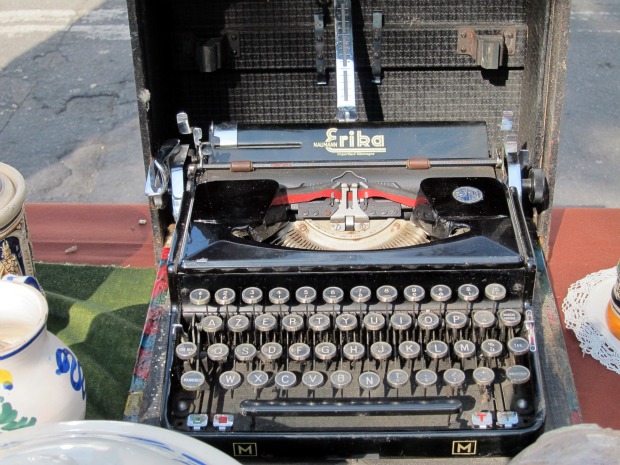
A Beautiful Old Typewriter, like the inspiration for the "blog" illustration
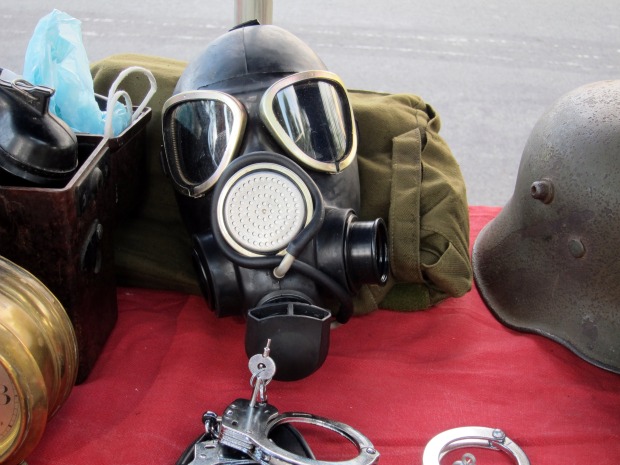
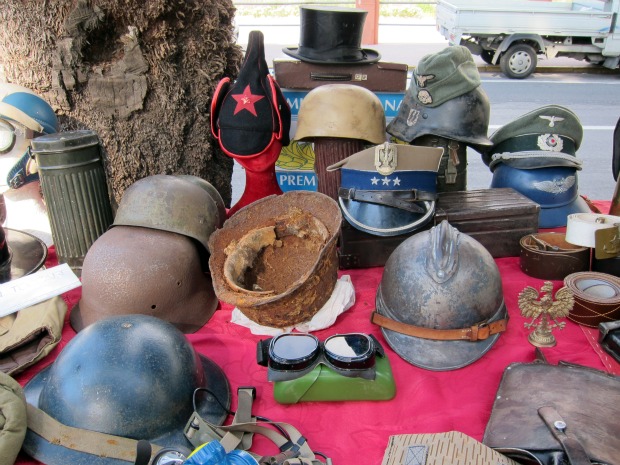
World War Helmets
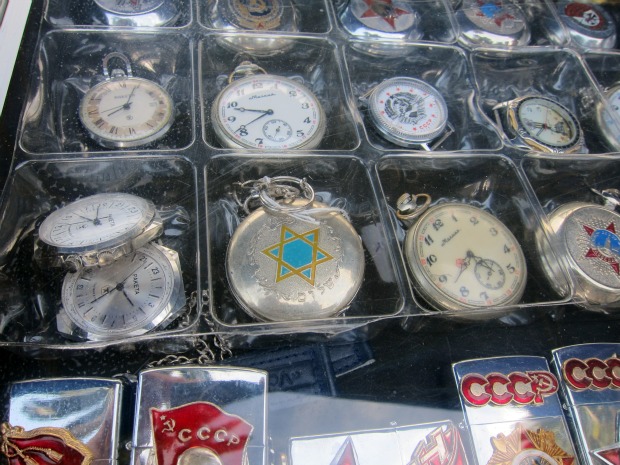
World War Pocket Watches
On the way back to the car, we ran into what I suppose you would call a flea market. Not like the flea markets I see in Florida–new things that are bad and cheap. But a real flea market, full of old things excavated from someone’s attic. Where you might really find buried treasure. Each stall promised something different. My mother bought a beautiful real old necklace for Mémé. I saw a mesmerizing old typewriter, much like the one that inspired the illustration for this “blog” page. I love that clackety-clack sound they make as you write away. There was all kinds of junk, too. Old dolls, which terrify me. Heavy marble boxes. And gorgeous relics. Real ivory daggers, and leather-sheathed sabres. Imagine the romantic histories those must have had. And somewhere amidst it all–a vintage Arizona license plate.
Soon, I came upon a stall that I still can’t make sense of. Since moving to the UK for school a few years ago, I have come to see that Europe still has not let go of the World Wars. Much as we still are haunted by our Civil War. It is part of our everyday conscious. Except, the World Wars were much more recent. Sometimes, I think Mr. English himself considers what our food would cost in terms of wartime rations. And he’s 27. But it wasn’t until this flea market stall that I felt how heavy the weight of the wars still hang here. The table was covered with helmets. I don’t know if they were WWI or WWII–maybe even a mix of both. A pilot’s mask that looked too near a gas mask to make me comfortable. Helmets that had clearly encased the heads of boys younger than me, and that could have found there way to this table mostly by one twist of fate: they had died. One was so badly rusted, that I thought maybe, just maybe, he had got away without it, for a farmer to dig up in his muddy field 50 years later.
The helmets were eerie, but that wasn’t what frightened me. On the table, next to them, were pins, insignia, all the things that soldiers wear on their uniform to signal whose side they play for. And then I remembered what side Italy was on in the war. All the insignia were Nazi. A few USSR, but other than that all Nazi. And in my life, I have never seen a real German swastika. In movies, of course. Even carved into a park bench. But somehow it was different. And what struck me was that while the USSR also represented something sinister, their insignia was bright and imperial, almost cheerful in red and gold. The Nazi insignia were dark, almost gunmetal in color. And there were even skull pins to go along with them. Sculls and crossbones etched into belt buckles. It was consciously, knowingly dark. It frightened me, and captivated me. Because on one side, I had the helmets of innocent young boys, on whatever side they had fought, that filled me with a protective love and empathy, and then the purposefully sinister and nearly terrifying face of the Nazi party. It put things into a perspective that I never really fully registered before. So much so that I swore to publish the photos I took on this blog, and to even buy one of the paraphernalia, to lock in a safe, and to use as proof and a reminder of what can happen when we let horrors run amok. I thought carefully about both, and decided to leave both where they were–unpublished and unpurchased. There were just so many of them–it reminded me of the piles of dog tags you can find in Vietnam. And next to them, a pocketwatch emblazoned with the Star of David. What stories you could find it those relics. Among all the colored artifacts you got the sense that this was some video game come to life, or some large-scale football tournament. Except it wasn’t a game, and it didn’t “come to life.” I was life. The only comfort I found was a Red Cross bag, and this being Italy, I wondered if it could have been Ernest Hemingway’s.
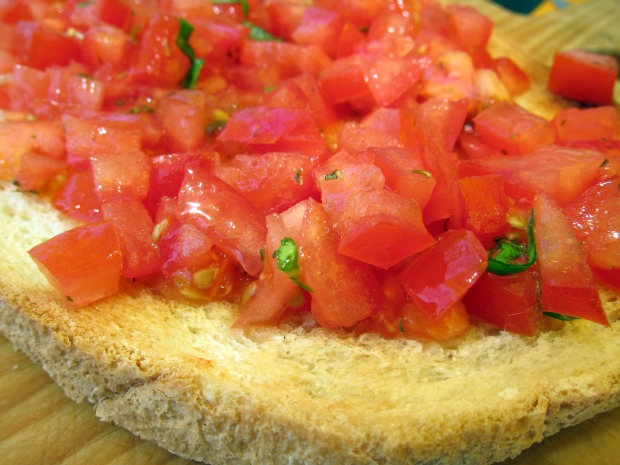
Bruschetta in Menton
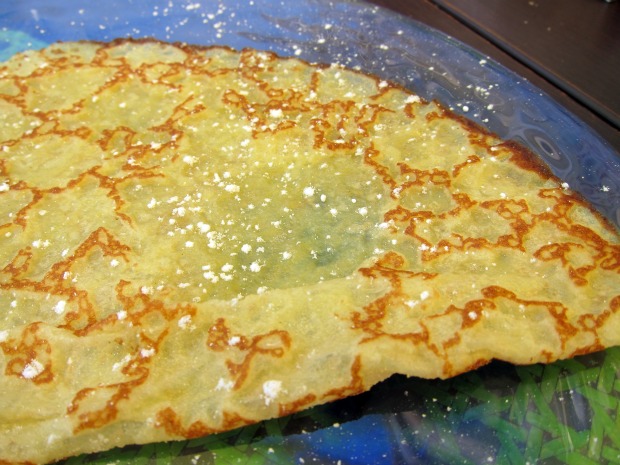
Crêpe au Sucre in Menton
Leaving the flea market, and crowds, and run down buildings behind us, we raced across the border to France. We had a quick, light, but delicious lunch in Menton of bruschetta and crêpes. Later that day, I decided to use my Ventimiglia purchases to write the recipes for this week’s columns. I made zucchini flower beignets, fried in olive oil, just like in Nice. And a zucchini flower pistou with the best walnuts of my life, tossed on fresh Italian tagliatelle. I stuffed the orata with lemon and olive oil, and charred it under the broiler. It had the whitest, sweetest meat. And a carrot salad, with that spicy French Dijon mustard (why is it never that spicy back home?) and walnut oil. It was a feast, because after a day like that, you have to stop and celebrate life! La vita e bella. La vie est belle. And from the terrace, in the cool of the evening, overlooking the bay of Monaco, life was very beautiful–and delicious–indeed.
You’re definitely going to want those recipes, so as the columns go up, I will republish them here, so check back! As for the fish, this is my recipe for roasting a whole fish: buy it gutted, gilled, and scaled. Preheat the broiler. Rub a good amount of olive oil all over the inside and outside of the fish. Season the inside and outside with salt and pepper. Stuff the inside either with sliced lemons or a big bouquet of fresh thyme. Put the fish on a baking tray lined with some aluminum foil, and it sit it close, but not directly under, the broiler. Cook 6 to 10 minutes on the first side, then flip the fish for another 6 to 10 minutes on the other side. You will know it’s done when the flesh is opaque and flaky. I make whole fish at least once a week–it’s cheap, and so much more delicious than any other way of eating fish. Don’t be intimidated! So what if you make a mess while eating it? Just watch out for the bones…
For more travels through France, explore here:
Paris Provence Côte d’Azur


